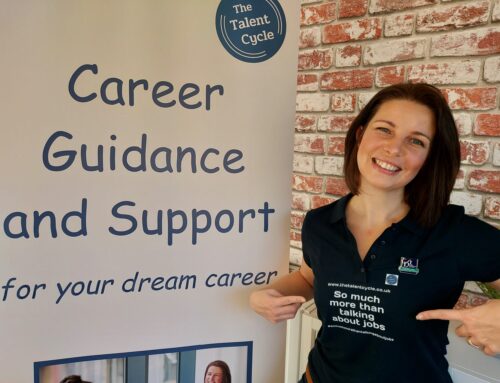2020 is a year that will be difficult to forget for UK schools. Teachers and students were expected to adapt rapidly to home schooling, using technology in different ways to help deliver this. Assessments for GCSEs, A Levels and BTECs all had to be calculated in new (and controversial) ways, and career guidance interviews had to be delivered by telephone or via video platforms. As the Chinese saying goes, we have truly lived in ‘interesting times’. Careers Leaders could therefore be forgiven for hoping for a less frenetic last few months of the year. Alas, the current Careers Strategy – written in the comparatively sedate pre-Covid context of 2017 – still expects all UK secondary schools to have met all 8 Gatsby Benchmarks by the conclusion of this year. So what should your school be doing to meet this challenge?

Gatsby Benchmark 1: A stable careers programme
This is your school’s overarching strategy for delivery of careers education and guidance, an ‘embedded programme … known and understood by students, parents, teachers, governors and employers’.[1] The key word here is ‘embedded’: careers education should both have its own dedicated sessions (lessons, workshops, employer encounters, assemblies, etc.) and be integrated into other areas of the curriculum. A key document to help you plan your careers programme, ensure it is aligned to both Gatsby and Key Stage and make it accessible to others is the Career Development Institute’s Framework for careers, employability and enterprise education. This is well worth reading and will save you a lot of time. Also, make sure your programme is published on your school’s website.
Gatsby Benchmark 2: Learning from career and labour market information
This Benchmark might seem challenging to meet given that we are now confronted with a labour market disrupted by Covid-19, but this same disruption can make for great LMI learning. Students can use resources such as Indigo and the National Careers Service website to research occupational information (e.g. average earnings, qualifications needed) for different jobs alongside resources like LMI for All’s Careerometer to look at longer term growth projections. The latter may not reflect a post-Covid world however, so don’t be afraid to let students use excellent job boards such as Adzuna and Target Jobs to compare this with ‘live’ job data in the ‘new normal’. Make sure your students have access to a qualified careers adviser (see Benchmark 8) to help them make sense of the information they find, however.
Gatsby Benchmark 3: Addressing the needs of each student
Students have different career learning needs at different Key Stages, something made explicit by the CDI’s Framework. Meeting this Benchmark goes beyond this, however, e.g. students with special educational needs will need their learning needs taken account of when they access career education and guidance. Equality and diversity are also vitally important, so your careers programme should challenge unhelpful stereotypes (e.g. based on gender, social class or ethnicity for example) and raise aspirations for all students. Forging contacts with employers who illustrate this in their own careers (e.g. women working in engineering or men working in caring roles) can be an effective way of achieving this. Keeping systematic records and accurate destinations data will evidence what you are doing to support each student’s career development.
Gatsby Benchmark 4: Linking curriculum learning to careers
There are many ways to make the link between academic learning and the world of work more tangible for students. For instance, teaching staff and employers can share their career journeys, highlighting how different subjects have benefited them on their career journeys. This does not have to be limited to the most obvious links between subjects and occupations – e.g. Maths/Physics and STEM occupations, although this is vital – it is also important to help students understand the transferable skills conferred by all the subjects they are learning. For instance, the analytical, communication and presentation skills developed by the Humanities are very durable and hard to replace in an increasingly automated world, which is useful to know if any of your students want to take their studies in these subjects further.
Gatsby Benchmark 5: Encounters with employers and employees
Schools have held careers fairs for years; while useful for offering wide coverage of lots of occupations, alone these are not necessarily going to embed the kind of high-quality career learning this benchmark is alluding to. The Careers and Enterprise Company highlights research demonstrating that young people benefit most from at least four or more high-quality encounters with employers. In the context of Covid-19, technology such as Teams or Zoom can be used to help young people and employers interact with each other. Activities such as mentoring, careers talks, career ‘speed dating’ and mock interviews are all still possible through means such as this and can still leave students with richer encounters with the world of work.
Gatsby Benchmark 6: Experiences of workplaces
At the time of writing, traditional work experience is perhaps the most difficult activity to organise in the context of Covid-19. Until workplaces once again are deemed safe enough for students to enter (guidance on this may change rapidly), virtual work experience can be a useful alternative. Initiatives such as Barclays Lifeskills and Speakers for Schools offer experiences that can give students at least some idea of what to expect when they enter the workplace and this can be valuable both in terms of shaping career thinking and in developing employability skills. By age 16, all students should have had at least experience of the workplace (in addition to part-time jobs, etc.), and one further such experience by age 18.
Gatsby Benchmark 7: Encounters with Further and Higher Education
This benchmark is underpinned by a piece of legislation known as ‘The Baker Clause’, which maintains that all authority-maintained schools and academies must give education and apprenticeship training providers the opportunity to talk to students in Years 8-13. Schools with their own sixth forms have understandably been concerned about losing their students to other providers by doing this. This fear is needless, particularly if students also have access to a qualified careers adviser (see the next Benchmark) who can help them make sense of the different options and evaluate what is best for them. Not doing this does not mean that students will not find out about the local college or apprenticeship options; they will, but may not have the benefit of structured guidance to help them decide which option is genuinely best for them.
Gatsby Benchmark 8: Personal guidance
This Benchmark is critical in helping students assimilate and make sense of what they have learned from the other seven. Only a careers adviser qualified to at least Level 6 in Career Guidance and Development and Registered with the Career Development Institute (and thus adhering to a professional Code of Ethics) should be employed to fulfil this Benchmark. This is because they will have the requisite training in career guidance theory, labour market information and guidance skills to help students evaluate the myriad options facing them and come to a better informed conclusion regarding which option is right for them. All students are expected to have had at least one 1:1 personal guidance interview by age 16, and the opportunity for a further interview by age 18. Careers Advisers are also adept in doing assembly talks, running group work sessions, delivering webinars and much else besides. Good communication and record keeping is vital to get the most out of your school’s Adviser, so make sure they are kept ‘in the loop’ at all times.
[1] Department for Education, 2017. Careers strategy: making the most of everyone’s skills and talents. December 2017. [online] Available at: https://assets.publishing.service.gov.uk/government/uploads/system/uploads/attachment_data/file/664319/Careers_strategy.pdf [Accessed 01.09.2020]
Oliver Jenkin is a Career Development Consultant at CSW Group with 11 years’ experience helping young people bring about positive changes in their educational and working lives. Oliver is a registered member of the Career Development Institute.





